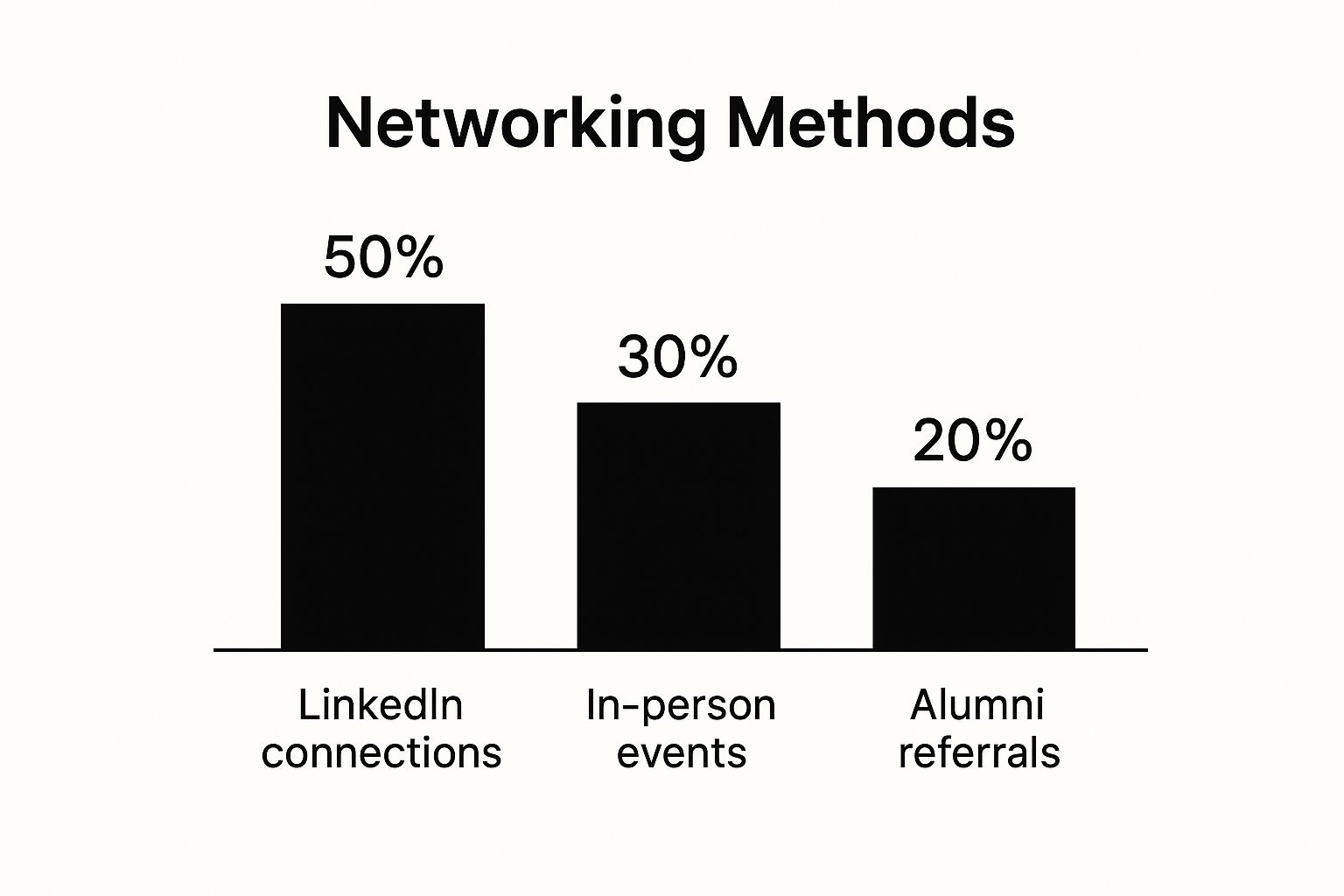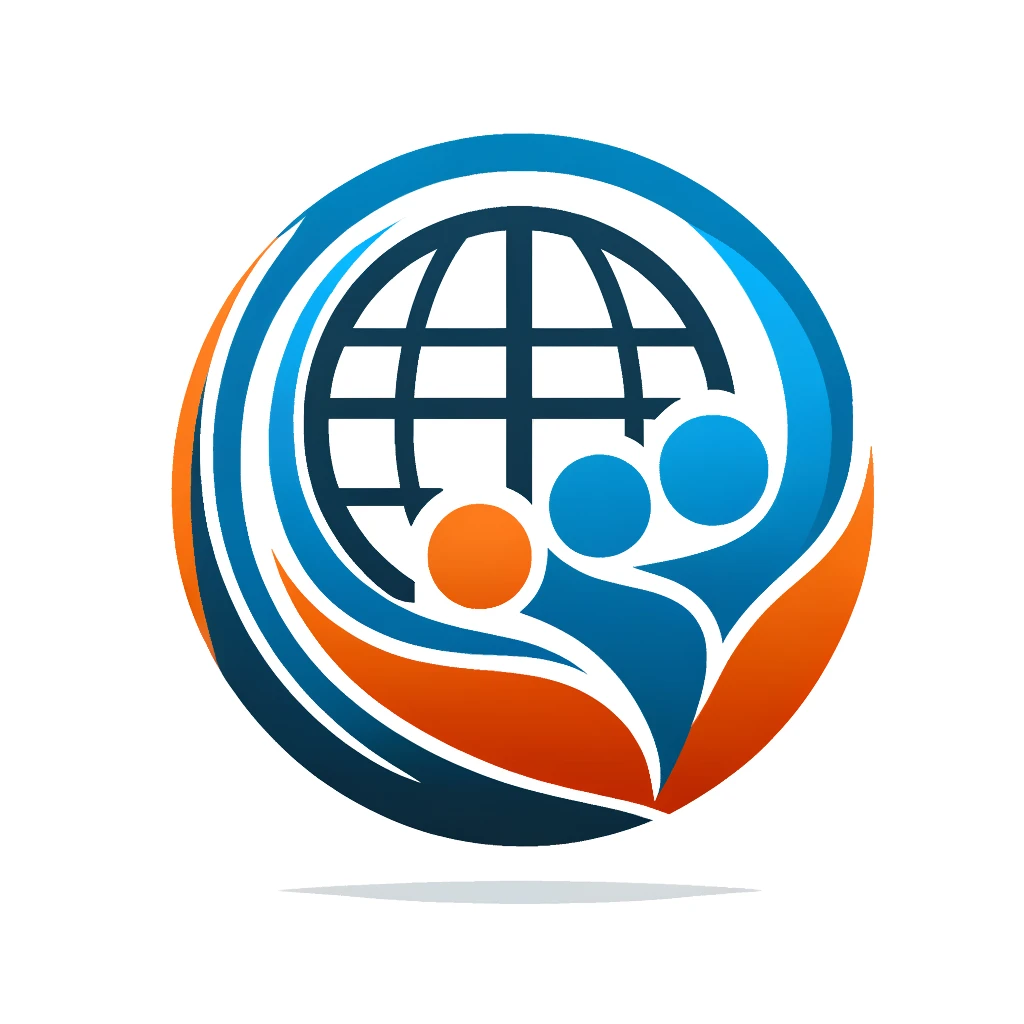Navigating Today's HR Landscape

The HR world has changed. It's moved beyond simple administration, becoming a core driver of any organization's success. This shift has created exciting new roles within HR departments.
Think talent acquisition specialists, who connect companies with top-tier candidates. Or compensation experts, who craft attractive benefits packages to keep employees happy and engaged. Knowing how HR works is essential for anyone looking to break into this field.
Understanding this exciting landscape empowers you to find the areas that best suit your talents and interests. It's your secret weapon for launching a successful HR career.
Understanding the Expanding Role of HR
Today’s HR professionals play a huge role in a company’s success, contributing far beyond traditional administrative tasks. They’re involved in everything from strategic planning to talent development, and creating a vibrant, positive work environment.
HR also has a huge influence on a company's culture. They champion diversity and inclusion and ensure everyone feels valued and respected. Understanding the broader impact of HR is your key to success in the field.
As you grow in your HR career, you may even find yourself developing future leaders. Learn how to build a leadership development program. This expanded role demands both technical expertise and strong interpersonal skills to handle today’s complex workplace dynamics.
The Importance of HR Technology
Technology has reshaped the world of HR. For a successful HR career, understanding this tech revolution is key. The HR software market is exploding, predicted to grow at a compound annual rate of 10.4%.
As of 2022, the market was valued at over $10 billion. This explosive growth reflects the increasing reliance on technology for talent management, recruiting, and employee engagement. You can explore more detailed statistics here.
HR professionals need to be tech-savvy, using software to streamline HR functions and create a better experience for every employee. This includes mastering different HR software platforms and staying on top of the latest advancements. It’s all about using the power of technology to make HR more effective and impactful.
Identifying Your Niche in HR
HR offers a wide array of specializations. This means you can find a career path that truly resonates with your individual strengths and passions. Maybe you’re drawn to the challenge of recruitment, the intricacies of compensation and benefits, or the power of learning and development.
Whatever excites you, understanding each specialization’s nuances is important. This includes the necessary skills, potential career paths, and daily responsibilities. Researching different HR specialties will help you find your perfect niche—the area where you can truly shine and make a lasting impact. This targeted approach is the cornerstone of a fulfilling and successful HR career.
Mastering Essential HR Skills That Actually Matter
So, you're dreaming of a career in HR? Fantastic! It's a vibrant field brimming with opportunities to make a real difference. But what does it truly take to shine in today's Human Resources world? This section unveils the essential skills – both technical and interpersonal – that will not only give you a competitive edge but also lay the foundation for a rewarding HR journey.
Technical Proficiency: The Foundation of Modern HR
Technology has become the backbone of modern HR. Applicant Tracking Systems (ATS), Human Resource Information Systems (HRIS), and other HR software solutions like BambooHR are now indispensable tools. Mastery of these systems isn't just an advantage – it's a requirement. Understanding their functionalities, data management capabilities, and how they contribute to overall HR efficiency is paramount.
Imagine a recruiter sorting through mountains of resumes. An ATS streamlines this process, saving valuable time and effort. Technical proficiency goes beyond simply knowing how to use the software. It's about understanding how technology seamlessly integrates with core HR functions, from recruitment and onboarding to performance management and employee relations.
Interpersonal Skills: The Human Touch in HR
While technical skills are crucial, the heart of HR remains undeniably human. Emotional intelligence, critical thinking, and discretion are the highly valued interpersonal skills that set exceptional HR professionals apart. Emotional intelligence empowers you to navigate the complexities of human interactions, understand employee perspectives, and nurture strong, positive relationships.
Critical thinking enables you to analyze situations objectively, solve problems efficiently, and make well-informed decisions. Discretion, equally vital, ensures that sensitive information is handled with the utmost confidentiality and professionalism. These interpersonal skills form the bedrock of trust and credibility within any organization.
To understand this further, let's look at the following comparison table:
Essential HR Skills Comparison: Technical vs. Interpersonal
| Skill Category | Specific Skills | Importance in Entry-Level Roles | Development Resources |
|---|---|---|---|
| Technical | Proficiency in HRIS, ATS, Reporting Software | High – Essential for managing data and processes | Online courses, software certifications, on-the-job training |
| Interpersonal | Communication, empathy, conflict resolution, active listening | High – Crucial for building relationships and fostering a positive work environment | Workshops, mentorship programs, self-assessment tools |
This table highlights the importance of both technical and interpersonal skills in entry-level HR roles, as well as resources to develop them. While software proficiency is essential for managing data and processes, strong interpersonal skills are equally crucial for building relationships and creating a supportive workplace.
The Demand for HR Professionals: A Growing Field
Understanding market trends is vital for launching a successful HR career. One key factor to consider is the current demand for HR roles and the priorities of hiring managers. In 2025, company growth and employee turnover are key drivers for HR hiring, with 57% citing growth and 53% citing turnover as reasons for increasing their HR teams. Find more detailed statistics here. This indicates a wealth of opportunities for skilled HR professionals. In-demand roles include specialists in talent acquisition, training and development, and compensation and benefits. This demand underscores the value of continuously honing your skills to meet the ever-changing needs of organizations.
Blending Technical and Interpersonal Skills
The key takeaway? The most successful HR professionals seamlessly blend technical expertise with strong interpersonal skills. This powerful combination allows you to effectively manage employee data, navigate workplace dynamics, and contribute to a positive and productive environment. It's this unique blend that truly makes a positive impact.
Think of it this way: technical skills are the tools you use to construct a building, while interpersonal skills are the architect's vision that brings the entire structure to life. Both are absolutely essential for creating a strong and functional final product. As you embark on your HR journey, focus on developing both skill sets to position yourself for success in this dynamic and rewarding field.
Breaking In: Landing Your First HR Position

Landing that first HR role can feel daunting. But don't worry, it's entirely achievable. This section offers a practical guide to navigating this exciting journey, exploring proven strategies and paths that have helped others find success. From the power of internships to the art of networking, we'll cover key steps to get your foot in the door and launch your HR career.
Strategic Internships: Building a Foundation
Internships are a powerful way to gain real-world HR experience. They offer hands-on exposure to a variety of HR functions, helping you develop essential skills and grow your professional network.
A strategically chosen internship can be a direct stepping stone to a full-time role. Many internships even lead to job offers upon completion.
For instance, a recruitment internship can immerse you in the entire hiring process, from reviewing resumes to conducting interviews. This practical knowledge is highly sought after by employers. Internships also allow you to demonstrate your commitment to HR and connect with experienced professionals, opening doors to mentorship and valuable job referrals.
Leveraging Adjacent Roles: Transferable Skills
Don't have direct HR experience? No problem. You can leverage valuable skills gained from other roles. Many administrative, customer service, and even project management positions develop skills directly applicable to HR.
Strong communication and problem-solving skills, for example, are highly transferable and essential for success in HR. This means your previous experience can be positioned as valuable preparation for an HR career.
Highlight these transferable skills on your resume and during interviews to showcase your potential. By emphasizing the relevance of your past experiences, you can present yourself as a strong candidate even without a traditional HR background.
Networking: Building Connections in HR
Networking is a cornerstone of breaking into HR. Connecting with HR professionals offers invaluable insights into the industry, potential job openings, and expert advice. Professional organizations like the Society for Human Resource Management (SHRM) provide excellent networking opportunities, particularly for those just starting out.
These connections can lead to mentorship programs, career guidance, and even job referrals. Understanding current trends in HR, especially in recruitment, is also crucial for aspiring HR professionals. There's a significant shift towards skills-based hiring, with 98% of companies finding skills-based hiring tools effective.
This move away from traditional credential-based hiring to a focus on skills and abilities is driven by the need for more accurate assessments of a candidate's potential. The increasing use of AI in HR is another important trend, streamlining processes like survey analytics and speeding up hiring. This integration of technology improves efficiency and allows for more personalized talent acquisition strategies.
Crafting a Compelling HR Resume and Cover Letter
Your resume and cover letter are your first introduction to potential employers. Tailor your resume to showcase skills and experiences relevant to HR, even if they come from other roles. Use a clear and concise format, focusing on quantifiable achievements and incorporating keywords related to the specific HR positions you're targeting.
Your cover letter should express genuine interest in the specific role and company, highlighting how your skills and experience align with their needs. Showcase your passion for HR and clearly articulate why you are the perfect fit for the position. A compelling resume and cover letter can be the key to securing an interview and ultimately landing your first HR role.
Finding Your HR Specialty: Where Will You Shine?
Embarking on a career in human resources offers a world of possibilities. This section helps you navigate the diverse landscape of HR specialties to discover the niche that best aligns with your individual talents and passions. We'll explore the core functions that drive HR departments and delve into the exciting emerging fields shaping the future of work. This exploration empowers you to make informed decisions, setting you on a path toward a fulfilling and impactful HR career.
Exploring Core HR Specializations
The heart of every HR department relies on several core specializations, each playing a vital role in the organization's success. Recruitment specialists, for instance, act as ambassadors, connecting talented individuals with the right opportunities. They are skilled in sourcing, screening, and interviewing candidates, often employing innovative platforms and techniques. For those interested in executive recruitment, resources like this guide on recruiting executives offer valuable insights.
Compensation analysts bring a data-driven approach to HR, analyzing market trends and internal data to develop competitive salary and benefits structures. Their work ensures fair and equitable compensation practices, essential for attracting and retaining top-tier talent. This specialization often calls for strong analytical and problem-solving abilities.
Learning and Development (L&D) professionals cultivate a culture of growth within organizations, empowering employees to reach their full potential. They design and implement training programs, manage performance development initiatives, and foster continuous learning. L&D is paramount for organizations striving to adapt and thrive in today's dynamic business world.
Emerging HR Specialties: Shaping the Future of Work
Beyond the core functions, exciting new HR specialties are constantly emerging. People analytics uses data analysis to provide insights that optimize HR decisions and boost organizational performance. This rapidly growing field presents exceptional prospects for professionals with strong analytical skills and a passion for data-driven solutions.
Employee experience design centers on crafting a positive and engaging journey for employees throughout their time with the organization. This specialization involves developing strategies to enhance employee engagement, well-being, and productivity, ultimately fostering a thriving and supportive work environment.
The following infographic illustrates the effectiveness of various networking strategies for launching your HR career:

As the infographic reveals, LinkedIn connections are the most fruitful networking method (50%), followed by in-person events (30%) and alumni referrals (20%). This underscores the importance of cultivating a robust online presence and actively engaging in industry events.
To help you visualize the various career paths available, let's look at the following table:
HR Specialization Career Paths: This table outlines various HR specializations, their entry requirements, growth potential, and average compensation ranges.
| Specialization | Entry Requirements | Growth Potential | Key Responsibilities | Average Salary Range |
|---|---|---|---|---|
| Recruitment Specialist | Bachelor's degree, relevant experience | High | Sourcing, screening, and interviewing candidates | $50,000 – $80,000 |
| Compensation Analyst | Bachelor's degree in business, HR, or related field; strong analytical skills | Moderate | Designing and administering compensation programs | $60,000 – $90,000 |
| Learning & Development Professional | Bachelor's degree, experience in training or adult education | High | Developing and delivering training programs | $55,000 – $85,000 |
| People Analyst | Master's degree in data analytics or related field, HR experience preferred | Very High | Analyzing HR data to improve decision-making | $70,000 – $110,000 |
| Employee Experience Designer | Bachelor's degree in HR, psychology, or related field | High | Designing and implementing strategies to improve employee experience | $65,000 – $95,000 |
This table provides a snapshot of potential career trajectories within HR, highlighting the diverse skills and responsibilities associated with each specialization.
Choosing the Right Path for You
The ideal HR specialization for you hinges on your unique strengths, passions, and career aspirations. Reflect on what truly energizes you. Do you thrive on building relationships, or are you drawn to the analytical power of data? Does your passion lie in training and development, or are you captivated by the strategic aspects of HR? By carefully considering your talents and exploring each specialization in depth, you can confidently embark on the HR path that best aligns with your potential and sets the stage for a rewarding and successful career.
Mastering HR Tech Tools That Employers Actually Use

Technology is reshaping the HR landscape. For those eager to embark on a career in HR, tech proficiency isn't just an advantage—it's a necessity. This section offers a practical guide to the essential HR systems you'll encounter, providing valuable insights to build marketable skills and position yourself for success in this dynamic field.
Essential HR Software: Your Tech Toolkit
From managing job applications to analyzing employee data, HR tech tools are integral to every stage of the employee lifecycle. A strong grasp of these systems is the foundation of a thriving HR career. Two crucial platforms you're likely to encounter are Applicant Tracking Systems (ATS) and Human Resource Information Systems (HRIS).
-
Applicant Tracking Systems (ATS): These systems bring efficiency to the forefront of recruitment. They empower HR professionals to manage job postings, screen resumes, and track applicants with ease. Imagine sorting through hundreds of applications manually—an ATS simplifies this process significantly. Building familiarity with prominent ATS platforms like Taleo, Greenhouse, or Workday can significantly enhance your career prospects.
-
Human Resource Information Systems (HRIS): These systems act as the central repository for all employee-related information. They manage everything from payroll and benefits administration to performance reviews and training records. An HRIS is the nerve center of HR operations. Gaining experience with platforms like BambooHR, ADP, or Oracle HCM Cloud can make you an invaluable member of any HR team.
Gaining Hands-On Experience: Building Your Tech Skills
How do you acquire experience with these tools before securing your first HR role? Several practical strategies can help you cultivate these in-demand tech skills.
-
Free Trials and Demos: Many HR software providers extend free trials or demos, providing a risk-free way to explore their platforms and grasp the fundamentals. This first-hand experience offers invaluable insights into how these systems function in a real-world setting.
-
Online Tutorials and Certifications: Platforms such as LinkedIn Learning and Coursera provide a wealth of courses and certifications on various HR tech tools. These structured learning pathways deepen your understanding and provide verifiable credentials to showcase your expertise.
-
Volunteer Opportunities: Consider offering your HR assistance at a non-profit organization. This presents a chance to interact with actual HR systems, accumulating practical experience and contributing to a worthy cause.
Emerging Technologies: Staying Ahead of the Curve
The HR tech landscape is in constant flux. Remaining informed about emerging trends, like AI-powered recruitment tools and people analytics platforms, places you at the cutting edge of the profession. These advanced technologies are revolutionizing how HR departments operate, from optimizing talent acquisition strategies to fostering better employee engagement. By consistently expanding your technical knowledge, you'll be ready to embrace the future of HR and drive innovation within organizations. This proactive stance will distinguish you as a forward-thinking HR professional.
Charting Your HR Growth: From Beginner To Leader
So, you've landed your first HR role – congratulations! This is just the beginning of an exciting journey in a dynamic and fulfilling field. This section explores potential career paths, offering insights from HR professionals at different stages and providing guidance to help you make key decisions and reach your full potential.
Specialist Vs. Generalist: Choosing Your Path
Early in your HR career, a pivotal decision awaits: specializing in a particular area, such as recruitment or compensation, or developing broader expertise as a generalist across multiple HR functions. Both paths offer unique benefits. Specialists often develop deep knowledge in their chosen area, potentially leading to quicker advancement within that specialization. Generalists, on the other hand, gain a wider understanding of HR, making them adaptable and well-prepared for leadership roles in the future.
Consider your personal strengths and long-term aspirations. Do the intricacies of a specific area intrigue you, or do you prefer a wider perspective? This self-reflection will illuminate the path best suited to your individual talents.
Timing Your Moves: Strategic Career Progression
Knowing when to change roles is another key aspect of career development. While remaining with one company for a significant period demonstrates loyalty and allows you to build specialized knowledge, strategic moves to other organizations can expose you to fresh challenges, broaden your skill set, and accelerate your career progression. There's no single right answer. It's about understanding your ambitions and evaluating when a change might provide growth opportunities you wouldn't gain otherwise. Perhaps a smaller organization offers the chance to lead an HR initiative, or a larger corporation presents an opportunity to specialize in an emerging area. Be open to new possibilities!
Professional Development: Investing In Your Future
Continuous learning is crucial for HR professionals. Investing in your professional development can greatly enhance your skill set and unlock opportunities for advancement. A formal education, like an advanced degree in Human Resources, can be valuable, but other avenues exist. Professional certifications, such as those from SHRM or HRCI, validate your expertise in specific HR competencies. Industry conferences and workshops offer valuable networking opportunities and exposure to current trends.
Consider your budget and preferred learning style when choosing development activities. Online courses might suit some, while others may thrive in the interactive environment of a workshop. The key is to continuously expand your knowledge and abilities.
Building Your Network: The Power of Connections
Networking is essential for career advancement. A strong network offers access to mentorship, career advice, and job prospects. Actively participate in industry events, connect with HR professionals on LinkedIn, and engage with alumni groups. Building genuine connections with others in the field can offer support and open unexpected doors. Your network is a resource for invaluable guidance, insights, and opportunities.
Overcoming Obstacles: Navigating Challenges
Every career has its share of challenges. In HR, this might involve handling difficult personalities, juggling competing priorities, or navigating organizational change. Developing resilience, strong problem-solving skills, and effective stress management are crucial. Remember, challenges are opportunities for growth. Seek guidance from mentors or experienced colleagues, and view each obstacle as a chance to learn and build your capabilities.
The Path To Leadership: Differentiating Yourself
What distinguishes successful HR leaders? They often combine strong technical skills with exceptional interpersonal abilities and a strategic mindset. They understand HR's contribution to organizational success and can align HR practices with business objectives. They demonstrate strong leadership qualities, including effective communication, the ability to inspire and motivate, and a commitment to ethical practices. By cultivating these skills and attributes, you can position yourself for leadership within the HR profession. Ready to take the next step in your HR journey? The Global Human Resource Institute offers a range of certifications to boost your skills and advance your career. Explore our certification programs today!




0 Comments